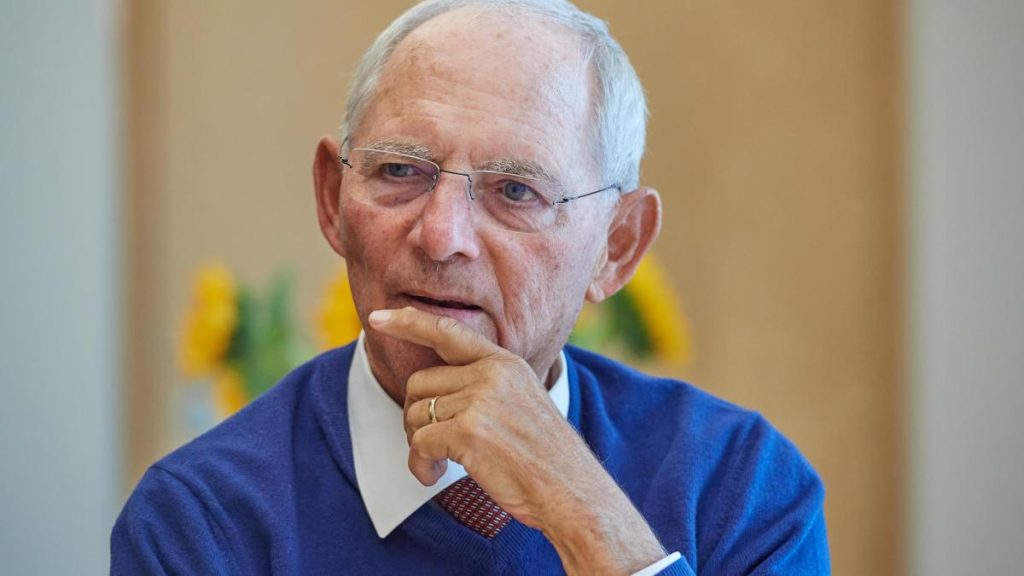In his posthumously published memoirs, Wolfgang Schäuble, the late CDU politician, revealed efforts by former CSU chief Edmund Stoiber to persuade him to overthrow Chancellor Angela Merkel during the 2015 refugee crisis. According to excerpts published by the “Stern” magazine, Schäuble described the situation within the Union as difficult in the fall of 2015, with Stoiber even trying to convince him to oust Merkel in order to become chancellor himself. However, Schäuble firmly rejected this suggestion, believing that toppling the chancellor would only harm the party in the long run without solving the underlying issues. Stoiber, who served as the Bavarian Minister-President and CSU Chairman from 1993 to 2007, had been critical of Merkel’s handling of the refugee crisis.
Stoiber declined to comment on Schäuble’s account when approached by the Deutsche Presse-Agentur, stating that he had engaged in numerous personal and confidential conversations with Schäuble over the years. Stoiber’s reluctance to provide a response to Schäuble’s revelations underscores the sensitive nature of the discussions that took place between them during the tumultuous period of the refugee crisis. Despite their differences in opinion, both Stoiber and Schäuble maintained a close and enduring professional relationship, as evidenced by their longstanding history of collaboration within the political sphere.
The published excerpts of Schäuble’s memoirs also highlight his unwavering support for Merkel’s decision to keep Germany’s borders open to refugees in September 2015, amidst the dire circumstances witnessed at Budapest’s train station. While he believed that Merkel’s actions were justified from humanitarian and European policy perspectives, Schäuble also criticized aspects of her approach to the crisis. He praised her resolute statement “Wir schaffen das” (We can do it), but felt that more efforts should have been made to communicate the challenges and sacrifices involved in supporting refugees to the public. Schäuble expressed frustration regarding Merkel’s perceived resistance to advice and suggested that she had missed opportunities to demonstrate strong leadership during the crisis.
Schäuble’s forthcoming book, “Erinnerungen. Mein Leben in der Politik” (Memories. My Life in Politics), offers readers a glimpse into his extensive political career, which included roles as Chancellor’s Chief of Staff, Federal Interior and Finance Minister, CDU Chairman, and President of the Bundestag. As the longest-serving member of the Bundestag in German history, Schäuble played a significant role in shaping the country’s political landscape over the course of five decades. His passing on Christmas Day at the age of 81 marked the end of a remarkable chapter in German politics, as tributes poured in from across the political spectrum mourning the loss of a dedicated and influential statesman.
Through his memoirs, Schäuble’s legacy endures as a testament to his unwavering commitment to public service and his steadfast adherence to principles of loyalty and integrity. As Germany grapples with ongoing challenges and transitions in its political landscape, Schäuble’s reflections offer valuable insights into the complexities of governance and the delicate balance between pragmatism and idealism. As his words resonate with readers, they serve as a reminder of the enduring impact of his contributions to the nation’s democratic institutions and the indelible mark he left on the hearts and minds of those who knew him.


